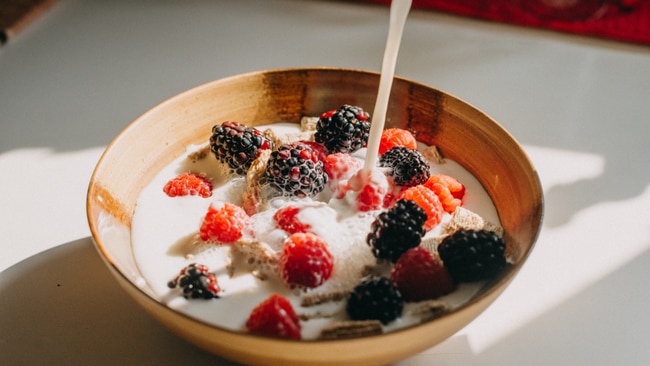Good or bad? The surprising truth about plant-based milks
It's time to reassess your non-diary devotion

Lifestyle
Don't miss out on the headlines from Lifestyle. Followed categories will be added to My News.
The rise of plant-based lifestyles has made 'regular' cow's milk a little 'irregular' in our coffee orders. However, new research shows that plant-based alternatives are far from a nutritional match.
Over the last few years, it feels like everything has become a milk, even things you thought couldn't be milked (here's looking at you, macadamias).
As a result, dairy consumption has declined significantly both globally and in Australia. Our dairy dodging in favour of soy, almond, oat, and other milk alternatives, is motivated by health concerns, environmental concerns, and other factors.
However, according to new research from the University of Minnesota, your favourite plant-based alternatives may not be nutritionally equivalent to good old cow's milk. Only 28 out of the 233 beverages taken from US supermarkets and included in the study had the same amount of protein, vitamin D, and calcium as cow's milk.
Like what you see? Sign up to our bodyandsoul.com.au newsletter for more stories like this.
CNN revealed more of the study’s findings, which were presented at Nutrition 2023, the American Society for Nutrition's annual meeting in Boston on Monday. About half of the alternatives were fortified with vitamin D, two-thirds were fortified with calcium and only 20 per cent had protein levels similar to dairy.
While Abigail Johnson, PhD, the study's lead author and dietitian, acknowledges that “cow’s milk certainly isn’t perfect and infallible,” she expressed concern about how the alternatives fall short. Only 38 of the 223 milk samples contained eight grams of protein or more — the amount found in a 250 ml glass of milk. The research found that soy and pea-based milks typically contained two grams of protein, with only some blends climbing to six to 10 grams.
And what about our bone-building pals, calcium and vitamin D? According to the study, 170 of the 233 alternative milk options were fortified with nearly the same amounts as found in a glass of dairy milk. Further investigation revealed that 76 per cent of oat-based products, 69 per cent of soy-based alternatives and 66 per cent of almond-based options were fortified with calcium and vitamin D goodness.

Saturated fat, sugar, and fibre were also under the nutritional microscope. The majority of the plant milks had saturated fat levels comparable to 1 per cent and skim milks, but they were not recommended as adequate fibre sources.
The worst part? Sugar levels in one-third of plant-based milks were comparable to chocolate or strawberry-flavored milks. "Do you want sugar with that?"–turns out you could be unknowingly saying yes when you've been telling the barista no.
Johnson emphasized the importance of understanding what you're pouring into your cup – and the nutritional decision you’re making when you do. So, the next time you're at the supermarket, scan the nutrition label. After all, your daily caffeine fix is more than just a habit; it's a chance to nourish your body with each sip.
Originally published as Good or bad? The surprising truth about plant-based milks


